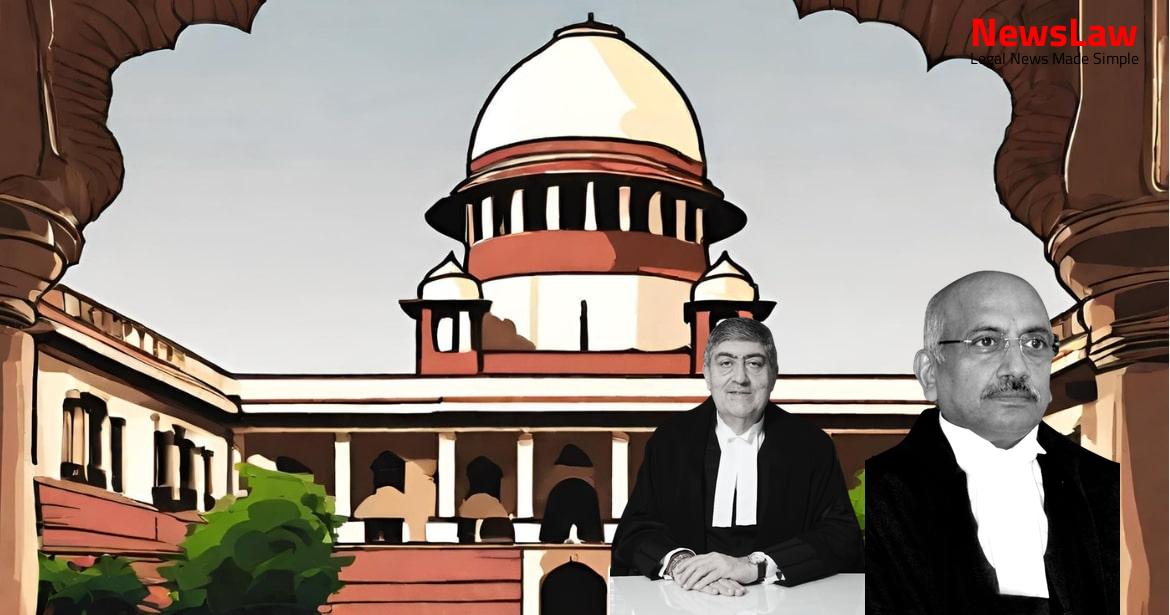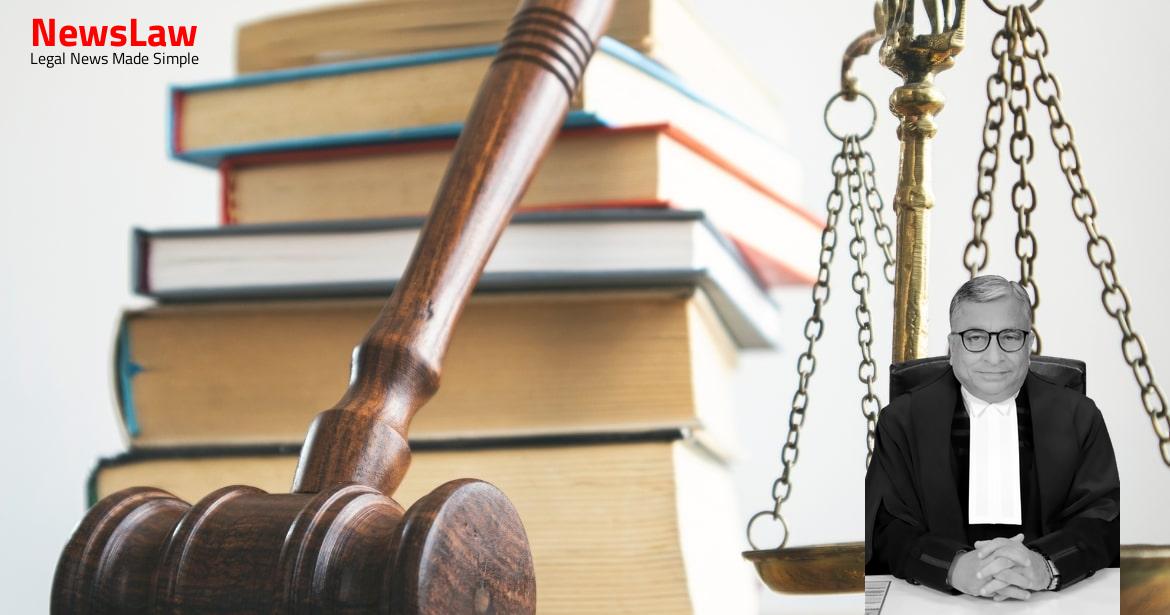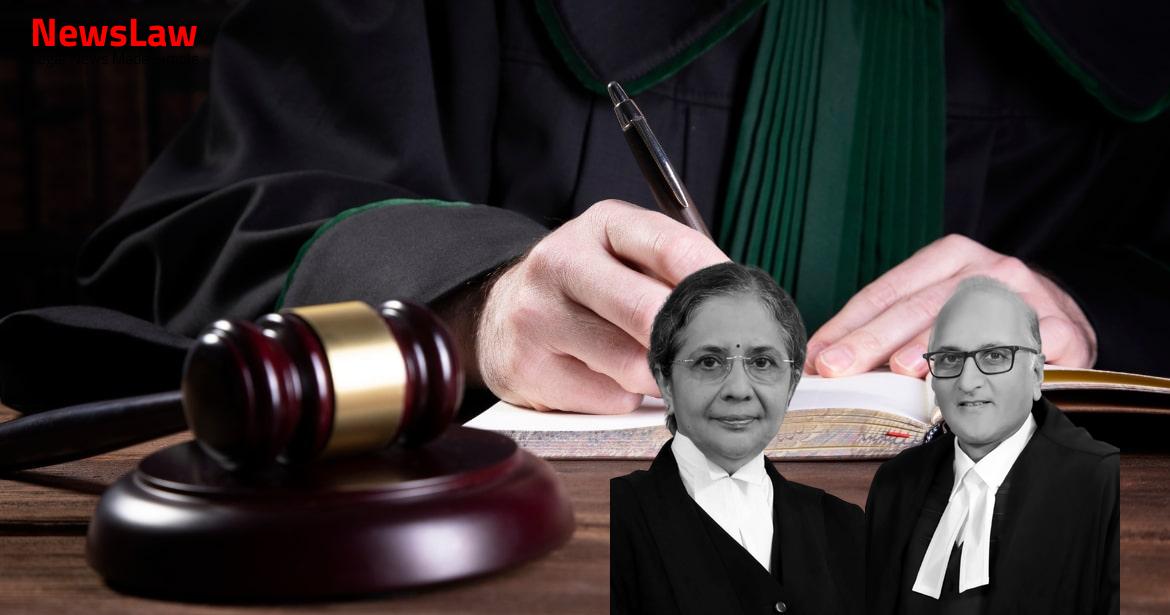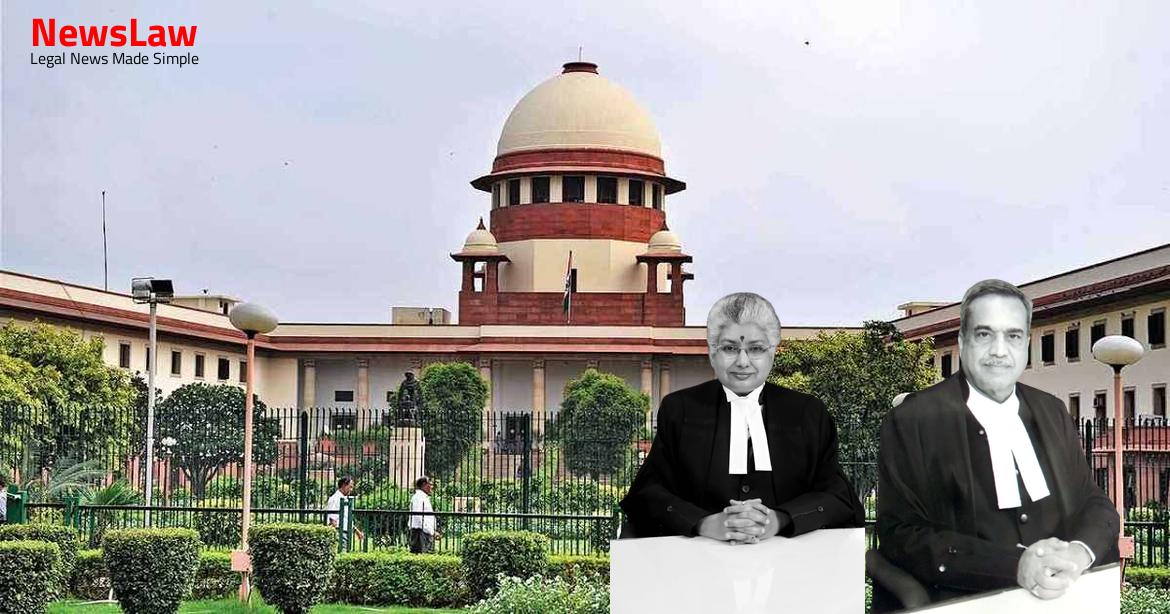Delve into the insightful judicial analysis focusing on the communication of government orders to public servants. The court’s examination of the interpretation of ‘communicating the order,’ and the significance of upholding the line of separation between the judiciary and executive branches. Discover the implications of ensuring proper communication protocols for public servants in this compelling legal case.
Facts
- Writ petitioner posted under Chief Medical Officer, Muzaffarnagar on 09.12.2016.
- Back wages declined on 27.02.2009 as petitioner did not perform government work from 05.07.2003 to 09.12.2016.
- Subsequent writ petition filed for payment of back wages, leading to a contempt petition and cancellation of office memorandum on 29.05.2018.
- Single Bench directed calculation and payment of 50% back wages to petitioner along with consequential benefits by State.
- Petitioner posted as Surgeon at District Hospital, Uttarkashi, Uttarakhand, with specific details of reorganization of medical officers.
- Writ petition challenges decision of non-posting and joining report submission.
- Petitioner filed multiple writ petitions regarding posting and back wages.
- State counsel’s arguments and Single Judge’s observations on the posting order and joining of petitioner.
- Writ petitioner part of the second phase of medical officers relieved by State of Uttarakhand on 5.7.2003 as per Uttar Pradesh Government’s posting order.
- Various letters and requests made by petitioner regarding postings in different districts.
- The Court held that the posting order was never communicated to the writ petitioner
- The writ petitioner was relieved by the Government of Uttarakhand on 12.09.2003
- The writ petitioner submitted a joining report on 18.09.2003
- The order in the writ petition dated 26.09.2016 was deemed final by the learned Single Judge
Also Read: Critical Analysis of Circumstantial Evidence in Arson Case
Issue
- Communicating the order to the concerned government servant was under question.
- The key issue was whether communication meant actual receipt of the order by the individual.
- The Court examined the interpretation of ‘communicating the order’ in relation to government servants.
Also Read: Analysis of Commencement Date in Gratuity Act Amendment Case
Arguments
- Writ petitioner seeks to be posted anywhere in the State of Uttar Pradesh.
- Finding in the order states that the posting order from 06.03.2002 was not served to the writ petitioner.
- Medical officers relieved by the Government of Uttarakhand submitted joining reports to Director Medical Health Services, U.P. and not at the specified place of posting.
- General practice in the Government of Uttar Pradesh involves medical officers submitting three choices for place of posting.
Also Read: Interpretation of Will and Hindu Succession Act: Legal Analysis
Analysis
- The Court emphasized the importance of not crossing the line of separation of powers between the Judiciary and Executive.
- Granting 50% back wages to someone who intentionally abstained from duty for 13 years was deemed unjust.
- Summoning officers to court puts additional burden on them and delays important tasks.
- The State government canceled disciplinary proceedings against the writ petitioner.
- The writ petitioner’s claim of not receiving the transfer order was refuted since multiple Medical Officers were transferred under the same order.
- The Court criticized the practice of frequently calling officers to court, stating that the power of pen is more effective than their physical presence.
- The writ petitioner’s actions were deemed condemned as he did not join duty after being relieved by the Government.
- The Court expressed that the dignity and majesty of the Court is not enhanced by calling officers to court and that respect should be commanded, not demanded.
- It was reiterated that public officers should not be summoned to court unnecessarily.
- Judges must have modesty and humility, and not behave like emperors.
- Judges must know their limits.
- The employee must report at the place of posting
- After reporting, the employee can request a transfer if permissible
- The transfer request should be based on the State’s requirements
- The employee cannot dictate their place of posting without joining their initial place of posting
Decision
- Writ petitioner was posted at Badaun.
- The orders of the High Court dated 05.03.2020 and 07.08.2019 are set aside.
- The appeal is allowed with no order as to costs.
- Orders of the High Court were found to be wholly unjustified, unwarranted, arbitrary, and illegal.
Case Title: THE STATE OF UTTAR PRADESH Vs. MANOJ KUMAR SHARMA (2021 INSC 327)
Case Number: C.A. No.-002320-002320 / 2021



